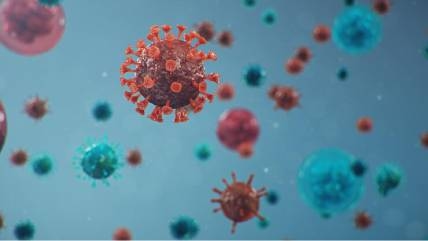
Are people with asthma at increased risk of COVID-19, or severe COVID-19?
Asthma patients do not appear to be at increased risk of acquiring COVID-19. Studies and systematic reviews have not shown an increased risk of severe COVID-19 in people with well-controlled, mild-to-moderate asthma.
Are people with asthma at increased risk of COVID-19-related death?
Overall, people with well-controlled asthma are not at increased risk of COVID-19-related death
However, patients on oral steroids in the last week prior to developing COVID-19 or patients with severe asthma are at high risk of severe infection.
(Williamson, Nature 2020; Liu et al JACI IP 2021)
What should asthma patients do for management of asthma if they acquire COVID-19 infection?
A pressurized metered-dose inhaler via a spacer is preferred except for life-threatening exacerbations where the oxygen SPO2 < 93% and unable to take the inhaler.
It is better to use a mouthpiece or mask for the spacer if required for a better inhaler technique.
Increase controller and reliever medication when asthma worsens.
Take a short course of OCS when appropriate for severe asthma exacerbations as per the advice of your health care provider.
Avoid nebulizers where possible, to reduce the risk of spreading the virus to health professionals and other patients/family members
COVID-19 vaccines and asthma
Have COVID-19 vaccines been studied in people with asthma?
Yes. Many types of COVID-19 vaccines have been studied and are being used worldwide
Are COVID-19 vaccines safe in people with allergies?
In general, allergic reactions to vaccines are rare. People with allergies to food, insect venom, or other medications can safely receive COVID-19 vaccines
As always, patients should speak to their healthcare provider if they have concerns
Monitoring for 15-30 minutes after COVID-19 vaccination is advisable for all asthma patients.
Based on the risks and benefits, and with the above precautions COVID-19 vaccination (including booster shots, if available) is recommended for people with asthma
Diet and lifestyle changes for asthma patients in COVID-19 time.
Eat to maintain a healthy weight.
Studies have shown that being overweight can worsen asthma as well as COVID.
Even losing a little weight can improve your symptoms.
It is good to know how to eat right to maintain a healthy weight over the long term.
Eat plenty of fruits and vegetables.
Vegetables are good source of antioxidants such as beta carotene and vitamins C and E, which may help reduce lung swelling and irritation (inflammation) caused by cell-damaging chemicals known as free radicals.
Avoid allergy-triggering foods.
It is advisable to avoid food which you are allergic to. As allergic food reactions can cause asthma symptoms.
Take in vitamin D. People with more-severe asthma may have low vitamin D levels. Milk, eggs and fish such as salmon all contain vitamin D. Even spending a few minutes outdoors in the sun can increase vitamin D levels.
It is up to us what we choose to eat. Making informed choices about what foods to eat and what foods to avoid won't cure asthma. But eating a balanced diet and avoiding known trigger foods may improve your symptoms and your overall health.
Have a healthy diet to have a healthy life.
Dr. Asmita Mehta
MD, FRCP (Edinburgh), FCCP(USA), FAPSR.
Professor and Head
Department of Respiratory Medicine
Amrita Hospital Kochi.







